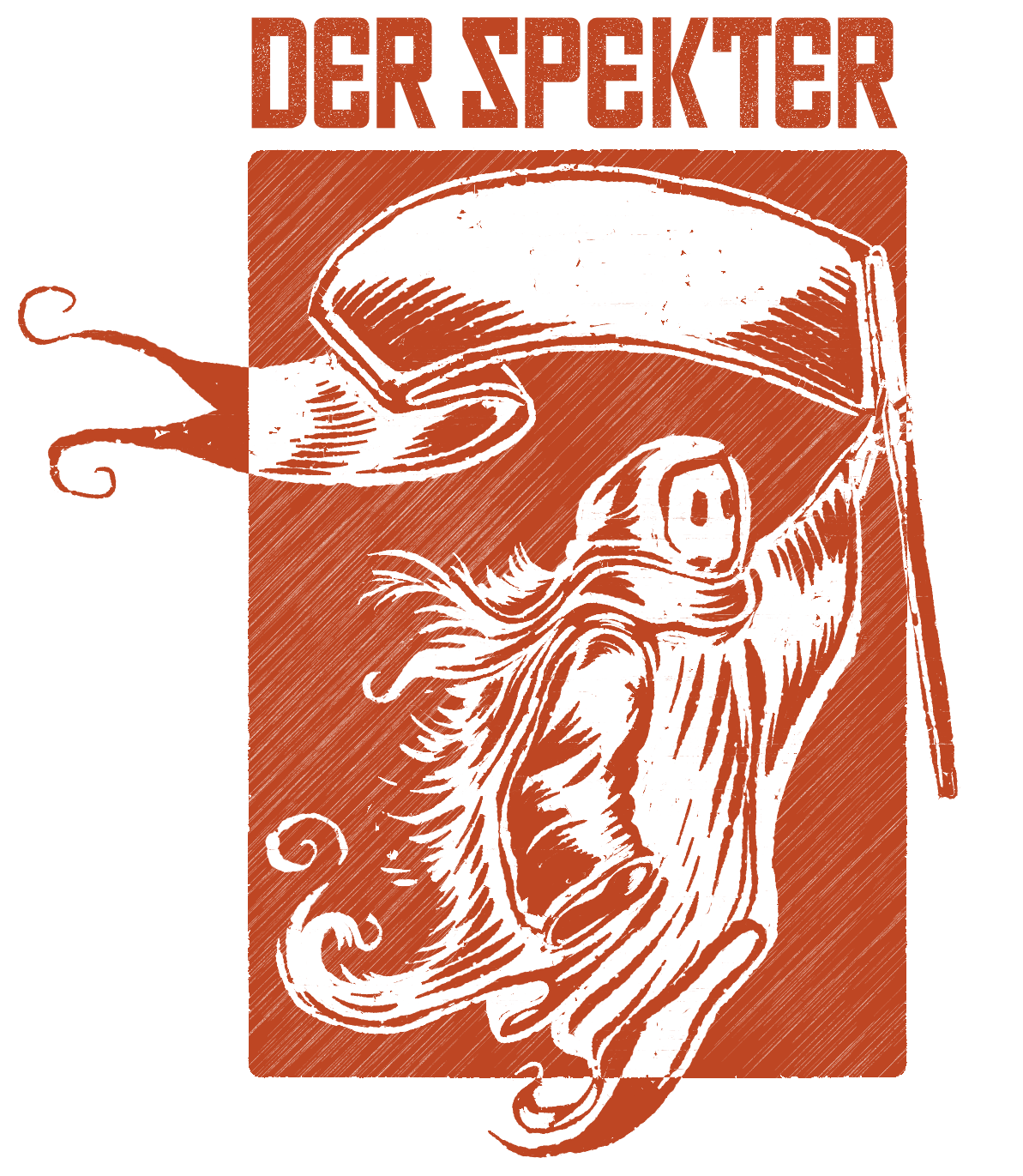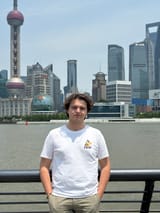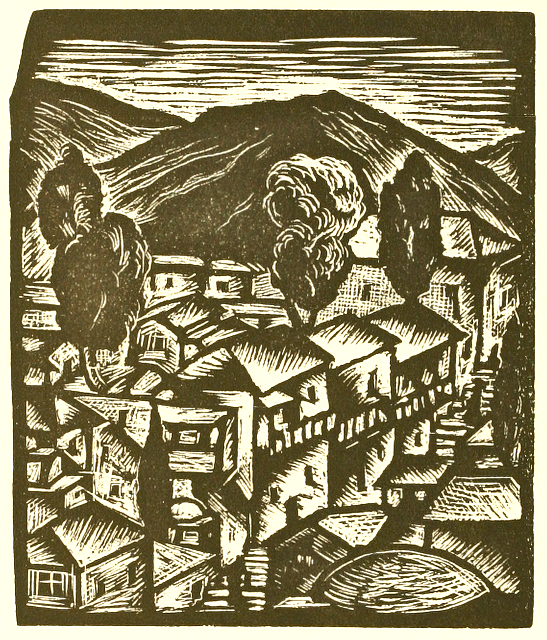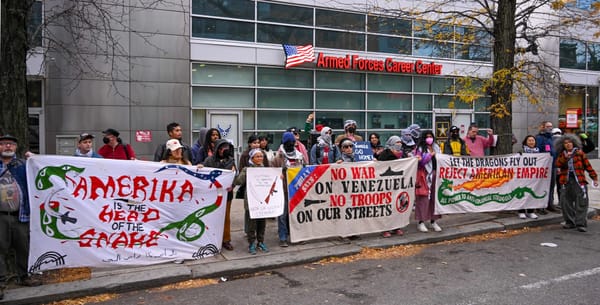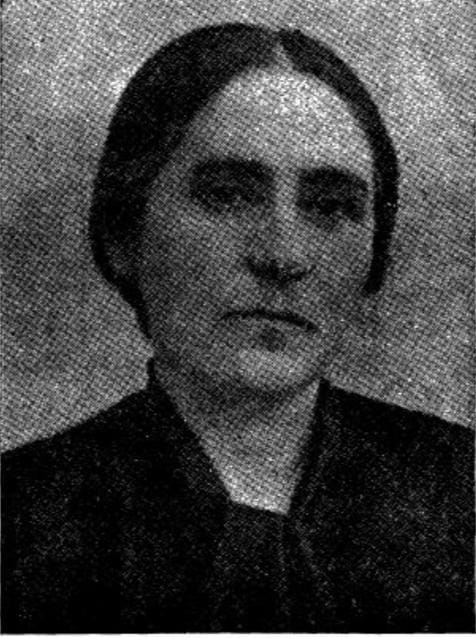Whether the Bund: A Big Year
IJLB representative Luca Schmit offers an update on the accomplishments of the Bund's revival so far and the challenges it faces.
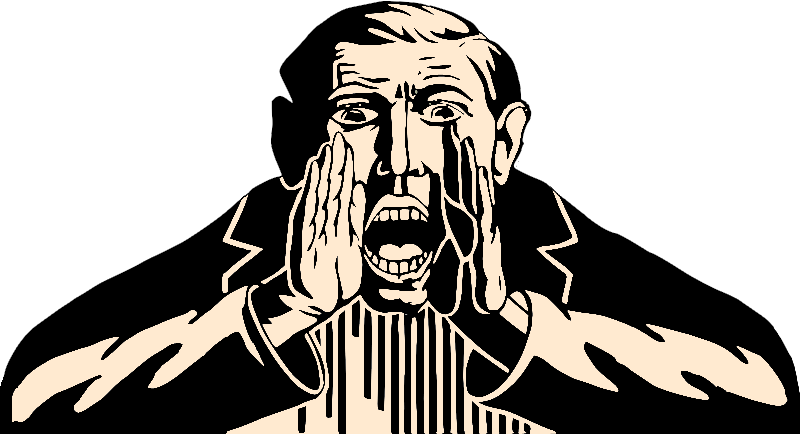
Editor’s note: Der Spekter is an independent, volunteer-run publication and not an official organ of the International Jewish Labor Bund. However, as a magazine that grew out of the Bund’s revival, we share this statement by the IJLB to keep our readers informed of the latest developments. We and the IJLB welcome reader responses, discussion and feedback. You can sign up to become a member of the IJLB at this form.
We at the International Jewish Labour Bund (IJLB) are here to report on our progress and efforts this past year and our hopes and plans for this dawning year, both in terms of our activism and organising but also what it means to our organisation as a whole locally and internationally. As Der Spekter’s readership might already be aware, the year of 2025 has witnessed the escalation of reaction and annihilation; the genocide in Palestine marches on, Europe is once again drowning in a tide of open fascism, and as we write this, white nationalist/anti-immigration marches have just recently occurred in Australia. In no other year in recent radical Jewish memory has the despair of Zionism and capitalist-imperialism been so total, and yet the call and potential of radical diasporism and socialism so resounding. With every fascist knife drawn out into the open, the need for the Bund to be a fighting and international organization for the interests of the Jewish working class is affirmed. If we must whether the Bund in this age then its path now lies entirely open to it.
This is because 2025 has ripped open crucial questions that need to be answered and which the Bund is well-suited to tackle. Questions such as: do we possess a cultural center like the old Bund did? To what extent is diasporism both an international and localized experience or practice? And, bearing that in mind, what about the practicalities? How can we best nurture, sustain and defend our radical communities and realities? How can we make Yiddish thrive as a living culture and language without reducing it to something that needs to be “preserved”? What about all the other wonderful Jewish languages? What is the Bund’s plan for them? How can we go further and build a revolutionary Jewish and working-class movement that includes all the multiplicity and radicality of diasporism? In short, how can the IJLB be made into a mass party of all the revolutionary Jewish working class? Should this even be the question in the first place? As you shall see from the updates from the local chapters as well as developments on an organization-wide level, the Bund has struggled with these issues throughout the year with no expectation that they will diminish. Instead, we welcome them, for the more successfully we grapple and resolve them the stronger we become as an organization and as “individual” revolutionaries.
That is why we march into this remaining quarter and upcoming year with unquenched hope and purpose for the future of ourselves and our movement. For reaction ultimately always fails; it inevitably and inexorably implodes into revolution, and the deeper the fascists and imperialists dig their hole, the taller and prouder the Bund’s banners of Yiddishkayt, Doikayt and Khavershaft fly.
That is why we say: Long live the Bund! Long live the revolutionary Jewish masses and their movement! To another year of struggle and victory!
With Bundist greetings full of joy and determination,
Luca Schmit (representative), International Jewish Labour Bund
Struggles on the Local Front
The campaigns, actions and protests that local chapters of the IJLB have either led or participated in this past year have constantly reminded us of how “hereness” (Doikayt) can direct our organising and strategy when it comes to working with local groups. To be more specific, it demands of us to establish popular power and radical possibilities of community wherever we might find ourselves; that our Jewishness (Yiddishkayt) blooms, not in spite of the local complexities that incubate it, but because of them. In real terms, this means practicing a radical and political Jewishness that is critically active in local issues, contradictions and in materially improving the conditions of the popular masses. Ours is a Jewishness that must have unflinching Khavershaft (Solidarity) with not only the Jewish working class but with the working class as a whole and all other popular classes engaged in the revolutionary struggle.
Arguably the most notable and well-documented example of this in action was the DMV Bund lending support and expressing solidarity with the Bethesda African Cemetery Coalition (BACC) but other cases we could mention include Krakow’s Cafe Bund organising around the issue of gentrification in the historic Jewish quarter or the Montana Bund’s efforts to negotiate with liberal groups over Palestine and local issues. This doesn’t scratch the surface of all the organizations and campaigns individual Bundists participate in wherein the principles of the Bund orient and guide organising and activism, such as Montana Bund members participating in a protest against a homophobic preacher, Western European members involved in Palestinian university encampments and much more. As one can imagine, these efforts are crucial in helping the IJLB form local networks and in establishing connections with other revolutionary groups that may expand our opportunities for organising, solidarity and agitation.
The success of this openness and critical solidarity is reflected not only in our growing and deepening relationships with local movements and groups but also in the growing number of local Bund chapters cropping up throughout the world. As we write this, plans are in the works to establish chapters in the Netherlands, Germany and Poland, either for the first time or on a greater scale. The hope is that, this time, these new chapters will be able to receive more support from the central IJLB organization as well as from other local networks from the outset. They will not merely bring the Bund into new struggles, conditions and localisms, but will also increase the public’s awareness of the Bund by making its presence felt in a greater variety of contexts. In fact, it has been one of our youngest and as of yet unofficial chapters, the Vilne (Vilnius) Bund, which has perhaps most decisively made a name for itself through acts such as protesting the Israeli president’s visit to Lithuania on the 4th of August. What this all amounts to is a far-reaching lesson in both the validity of locally-centered organising, which amplifies the often small numbers of Jews in a given area, and the importance of developing a Jewishness that is aware of local dynamics and deeply critical of itself.
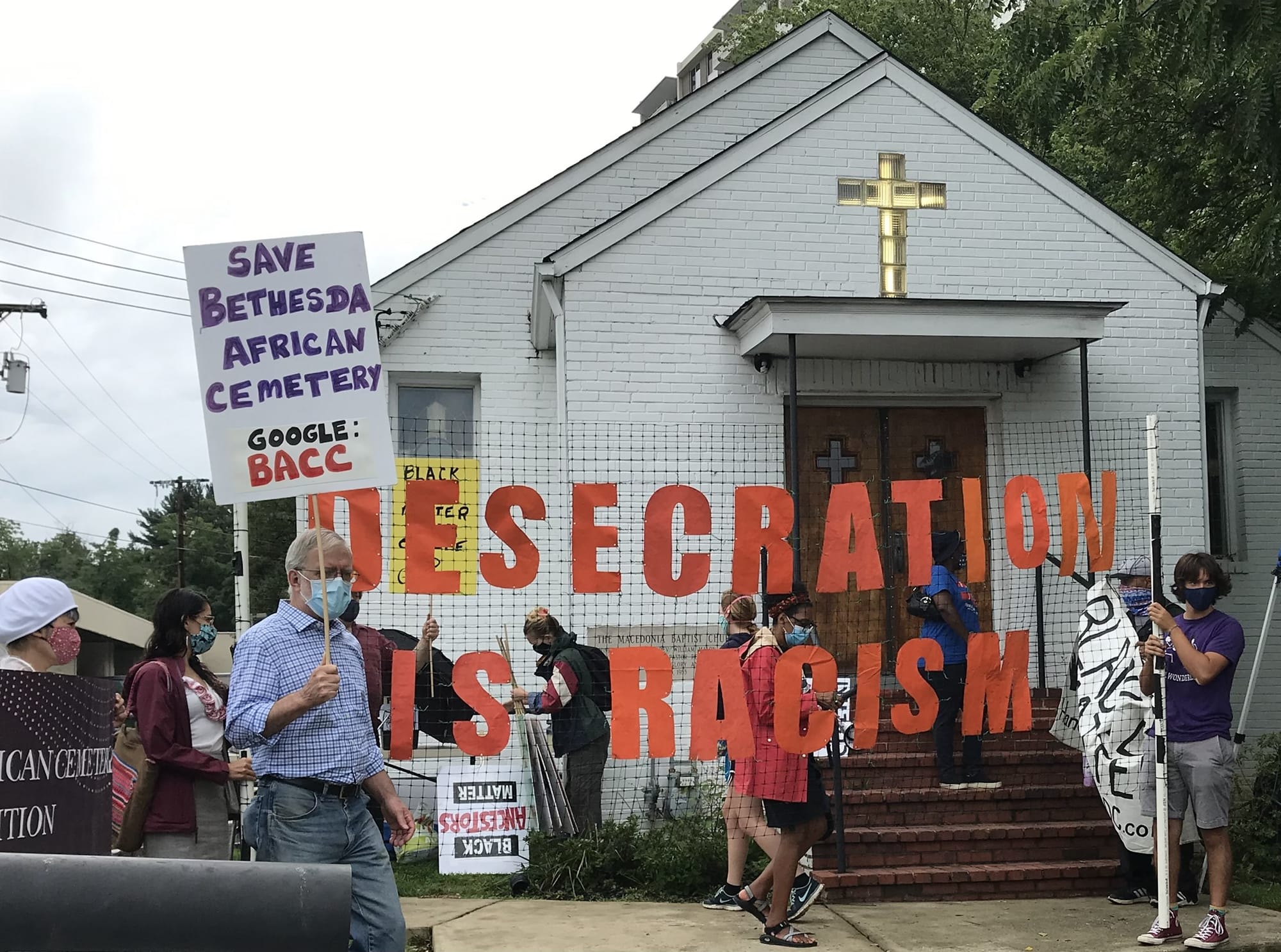
This brings us to the Bund’s efforts at fostering Yiddishkayt and a broader blossoming of revolutionary Jewish culture which, like our local organising, has seen consistent albeit at times slow progress. Many of these actions have centered on commemoration and engagement with Jewish and Bundist history; for example, members in Krakow organised a commemoration of the 80th anniversary of the Krakow Pogrom, and other local chapters have used their anniversary events as an opportunity to celebrate Bundist history and heritage. Other undertakings are more geared towards proactive cultural education for both Bundists and non-Bundists, such as the Montana Bund organising Yiddish classes, the Vienna Bund working with other Jewish and non-Jewish groups to organise a Yiddish musical-cultural event, and the New England Bund attending a klezmer and Yiddish picnic organised by Boston’s Workers Circle.
While all these cultural activities and events are certainly positive developments, they also underscore some issues with our ongoing organizing. The main problem is that our cultural work has so far been limited in scope and cohesion; local work succeeds at strengthening specific networks and alliances but fails to embody or connect to a wider political programme or objective. Furthermore, though local cultural Jewish spaces are in the process of growing and being revitalized, there has so far been little effort in integrating them into a unified cultural forum or front. What this emphasizes above all else is the fact that the Bund still does not constitute the beating heart of the revolutionary Jewish and working class movement; it lacks the transnational democratic structures, administrative capacity and cultural legitimacy to transform it into a united force that is a true successor to the glories of the Bund of old. Luckily, none of these gaps and shortcomings are fated to be or remain. In fact, any serious political party should welcome such faults because it is in dealing with them that we stand to learn the most. That is why our gaze now turns towards the progress the Bund has made as a whole, as an international organization, and where progress is still left to be had.
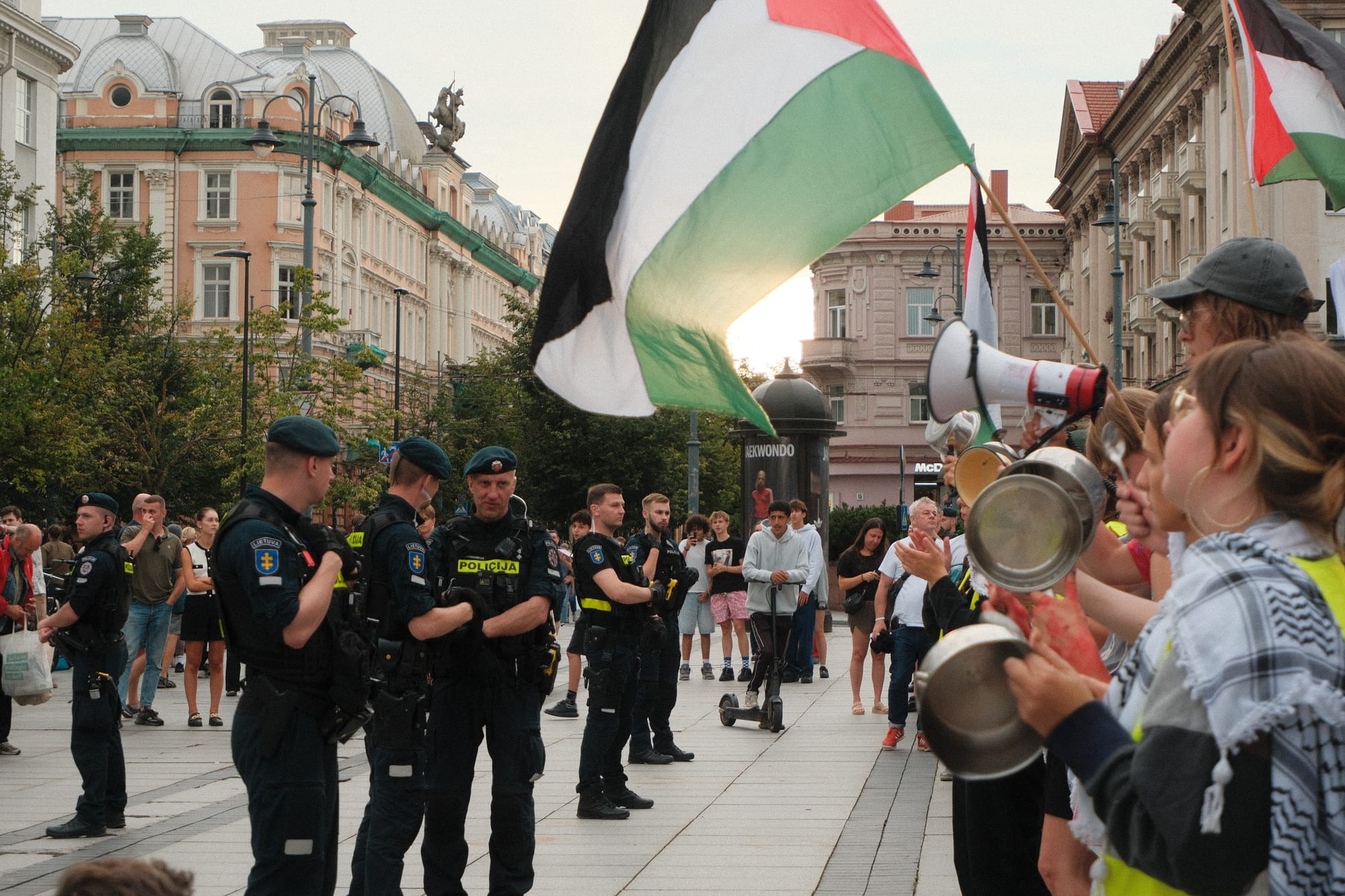
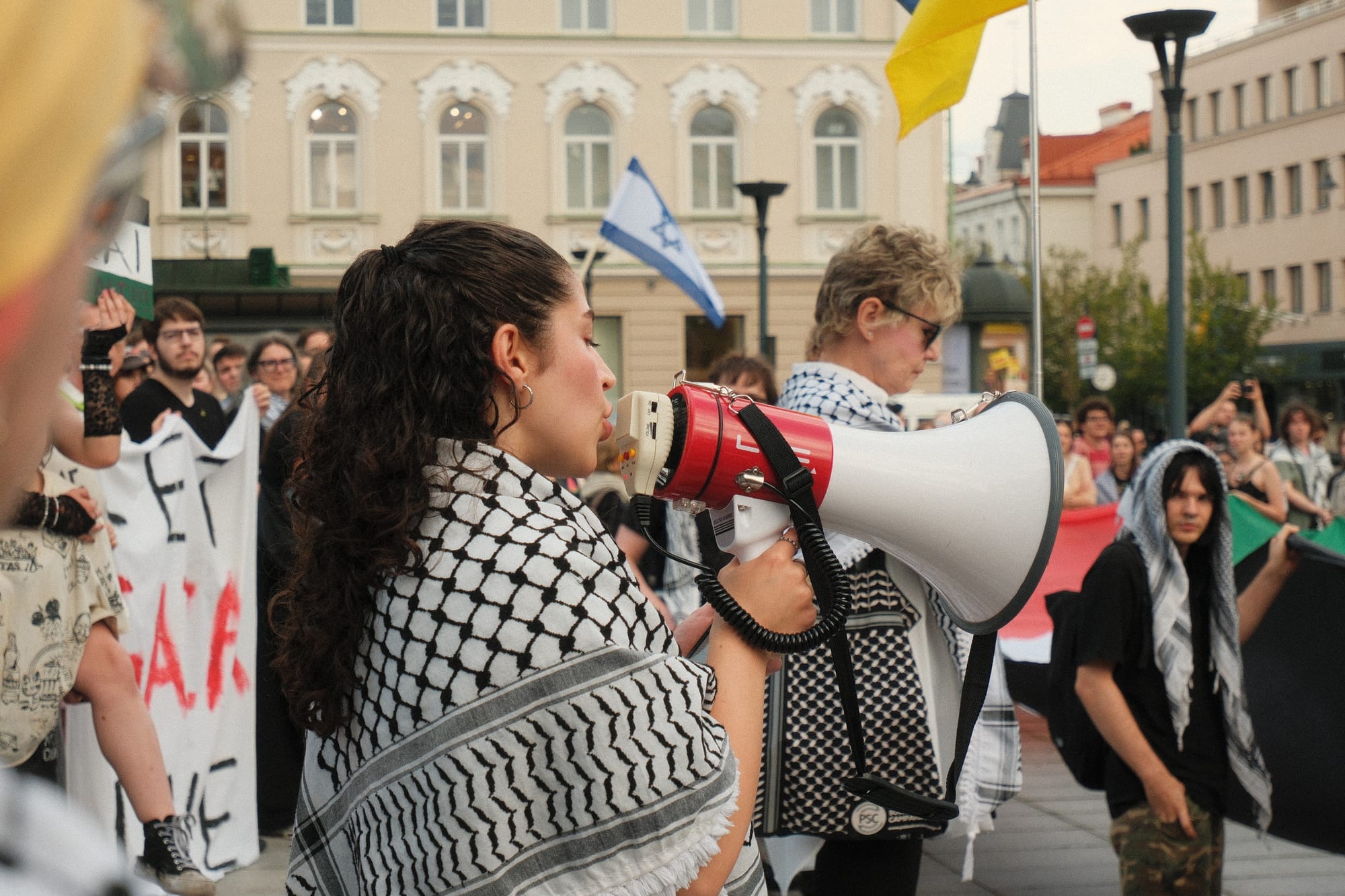
Members of the Bund's Vilna chapter protest Israeli President Isaac Herzog's Aug. 4 visit to Lithuania. Images courtesy Saulius Gabrielius Vinokuras.
International and Organizational Efforts
The main area of neglect or inattention organization-wide is in the matter of finances and funding. Most strikingly, the Bund as of yet entirely lacks a treasury or any sort of competent body dedicated to overseeing financial matters, budgetary concerns or other such problems. The impacts of this cannot be overstated; the organization has no means or capacity to fund itself, it has no common resources to spend on specific issues, campaigns or chapters and it therefore has no ability to develop structures, programmes and resources that benefit the organization and the movement as a whole. The urgency and severity of this explains why one of our first tasks for the upcoming year is to establish a proper treasury for the whole Bund which will probably be resolved in tandem with the issue of establishing the IJLB as a formal and recognized legal entity; however, the details of this remain to be worked out.
The problem of finances is in part connected to the underdeveloped state of the Bund’s administrative structures and capacity, which in large part can be explained by the fact that the IJLB is an entirely new organization which emerged out of a union of localized groups and chapters with different norms, procedures and experiences. Thankfully, several actions have been taken or are being planned which will address this problem directly. Firstly, the general membership agreement will be revised and improved, with the overall process of onboarding new members simplified, streamlined and rendered more “automatic.” Secondly, more people will be encouraged to join the administration committee, and questions on roles and responsibilities will be clarified. Lastly, clearer and more standardized rules ought to be implemented across the various local chapters. This has already been done by the Vienna Bund, whose guidelines could be used as a model. These “reforms” are crucial because not only will they reduce the total amount of time spent on tedious and non-political administrative dreck, but because they lay the groundwork for the Bund to organise international events, assemblies and campaigns with a core of skilled people who can make them happen. In other words, the more things run efficiently and seamlessly administratively, the more attention and labour can be committed to the actual purpose of the IJLB and to revolutionary political work. After all, we did not become Bundists to be two-bit bureaucrats.
“In no other year in recent radical Jewish memory has the despair of Zionism and capitalist-imperialism been so total, and yet the call and potential of radical diasporism and socialism so resounding.”
These organizational changes have also been accompanied by projects to expand the appeal of the Bund as a whole and greatly improve our capacity to share communications and statements. This has come in the form of a complete revamp and restructuring of our website, which may include featuring articles or writings from the various chapters of the IJLB, a calendar system providing organising and event Information, as well as the function of onboarding and certifying new members. Another example of this has been our efforts to improve regional organising by working towards the creation of localized secretariats, and fostering deeper solidarity and friendship between the various chapters by organising ‘khavershaft’ events such as trips, lessons and conferences. All of these efforts, however, are still very much fluid and vague and will become more concrete as this year closes out and the new one begins.
All of these changes constitute a significant step forward in the development of the IJLB as we seek to expand the organization and its efforts on all fronts. Further, these changes continuously emphasize the development of the new Bund into an international party founded on a democratic and popular basis, and of the necessity for a fighting Jewish organisation. This development requires us to actively and consciously push the Bund in that direction, to transform the Bund from a confused organism of committees into a cohesive front of revolutionary Jewry where the Bund is its beating heart.
In short, the new year brings forth new questions, and the escalation of old ones to new intensity, and as it does, the old order shatters ever further beneath our feet and fists. Separate and discordant, they amount to nothing more than a pitter patter, a drowsy rain of political confusion. But together, they may yet prevail. Together, we may yet be a golem bound in the clay of Bundism, a sentinel not of myth but of reality, one which is not shattered in the heat of struggle, but hardened.
